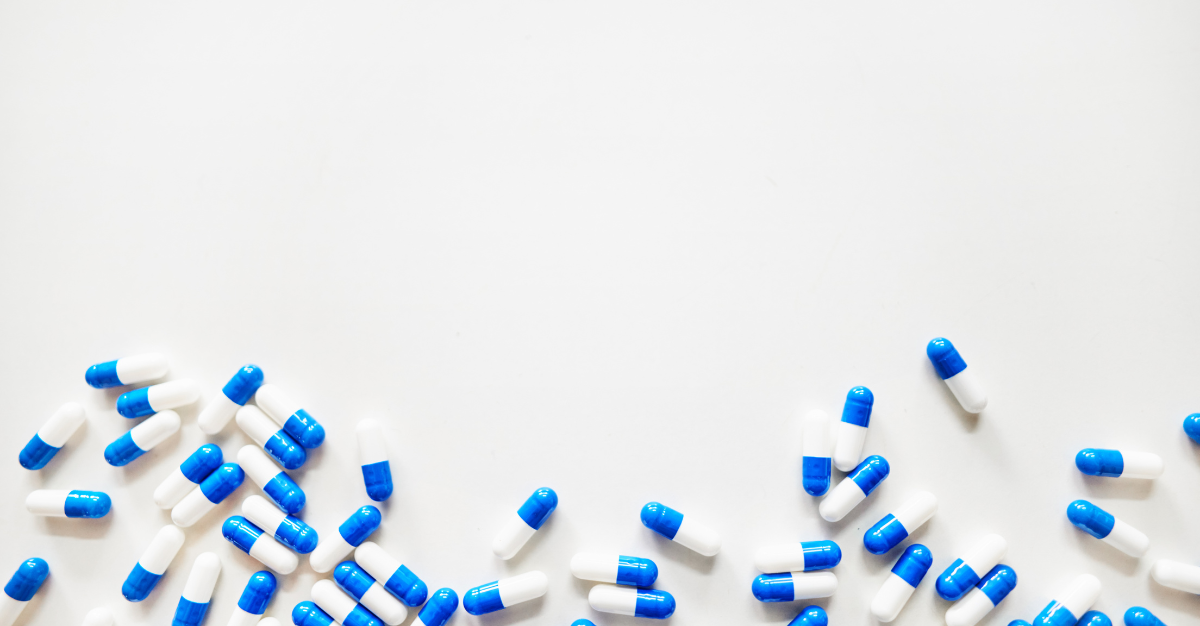Are Antibiotics Wrecking Your Gut?
Antibiotics are unquestionably one of the greatest medical breakthroughs, saving countless lives from once-deadly bacterial infections. Yet their widespread use comes with a significant downside: they don’t just target harmful bacteria, but also the beneficial microbes in your gut. This imbalance can undermine your digestive health, weaken your immune system, and increase your risk for various chronic conditions. Understanding how antibiotics affect your gut—and how to support recovery—is crucial for long-term well-being.
Why Your Gut Microbiome Matters
Your gut houses a complex community of microorganisms (bacteria, viruses, fungi), collectively known as the gut microbiome. These tiny organisms play an outsized role in:
Digestion and Nutrient Absorption
Immune Regulation (about 70% of the immune system is found in gut-associated lymphoid tissue)
Inflammation Control
Mental Health (via the gut-brain axis)
When antibiotics disrupt the microbiome, it can trigger a domino effect of health issues—ranging from reduced immunity to heightened inflammation.
How Antibiotics Disrupt Gut Health
Dysbiosis (Microbial Imbalance)
Antibiotics often wipe out both harmful and beneficial bacteria. This can set the stage for an overgrowth of pathogens or an overall decline in microbial diversity, leading to digestive complaints like bloating, gas, or irregular bowel movements.Reduced Immune Function
Beneficial gut microbes help train your immune cells to differentiate friend from foe. Without a balanced microbiome, the immune system may overreact or underreact, potentially raising the risk of infections and autoimmune conditions.Opportunistic Infections
A weakened microbiome can open the door for problematic bacteria such as Clostridioides difficile (C. diff), known to cause severe diarrhea and colitis.Nutrient Deficiencies
Many gut bacteria produce or help absorb essential vitamins (e.g., K2, B vitamins). After antibiotic use, these processes can be compromised, leading to suboptimal nutrient levels.Connection to Immunity
A healthy gut microbiome is vital for maintaining a strong immune defense. Conversely, an imbalanced gut can lead to:
Heightened Inflammation: Toxins and bacteria can cross a weakened intestinal barrier, entering the bloodstream and triggering systemic inflammation.
Allergy and Asthma Risks: Reduced microbial diversity has been linked to an uptick in allergies and asthma, especially if antibiotics are overused in early childhood.
Rebuilding and Restoring Your Gut
The good news? Your gut microbiome is adaptable. With the right strategies, you can help it bounce back from antibiotic disruption.
Probiotics
Why: Live beneficial bacteria that recolonize the gut.
Strains to Consider: Lactobacillus rhamnosus GG, Bifidobacterium lactis, and Saccharomyces boulardii.
Timing: A few hours after taking antibiotics to ensure the probiotic bacteria aren’t immediately destroyed.
Prebiotics
Role: Non-digestible fibers that feed beneficial bacteria.
Sources: Garlic, onions, leeks, asparagus, bananas, dandelion greens, and chicory root.
Nutrient-Dense, Gut-Healing Foods
Bone Broth: Packed with collagen and amino acids that help repair the intestinal lining.
Fermented Foods: Yogurt, kefir, sauerkraut, kimchi—natural probiotic sources.
Omega-3 Fatty Acids: Found in salmon, sardines, and other fatty fish; helps calm inflammation.
Polyphenols: Present in berries, green tea, and dark chocolate—support beneficial gut flora.
Targeted Supplements
L-Glutamine: Assists in repairing the intestinal lining.
Zinc Carnosine: Helps maintain gut barrier integrity.
Vitamin D: Crucial for immune function; deficiency can weaken the gut barrier.
Digestive Enzymes: Aid digestion and reduce strain on the gut during recovery.
Stress Management
Ongoing stress can impair gut function by altering your microbiome and slowing recovery. Incorporate techniques like mindfulness, yoga, or deep breathing exercises to keep stress in check.
Avoid Additional Gut Disruptors
While you’re healing, minimize alcohol, high-sugar foods, and unnecessary medications (like certain NSAIDs). These can aggravate dysbiosis and prolong recovery.
Assessing Your Gut Health
If you suspect ongoing imbalance, lab tests can help pinpoint the issue:
Comprehensive Stool Analysis: Measures bacterial diversity, pathogens, and inflammation markers.
SIBO Breath Test: Detects bacterial overgrowth in the small intestine.
Zonulin Test: Evaluates intestinal permeability (“leaky gut”).
Strengthening Immunity Post-Antibiotics
A solid immune system depends on a healthy gut. Here are some tips to rebuild:
Balance Your Diet: Emphasize whole foods packed with vitamins A, C, E, and zinc.
Stay Active: Moderate exercise supports circulation and immune function.
Prioritize Sleep: Aim for 7–9 hours to allow the body and gut to repair.
Hydrate: Adequate water intake promotes detoxification and supports overall immune health.
Preventing Antibiotic Overuse
Avoiding unnecessary antibiotic prescriptions is key to preserving both gut and overall health:
Use antibiotics only under professional guidance.
Follow instructions precisely; finish the full course to prevent resistance.
Maintain a healthy lifestyle to reduce infections in the first place.
Conclusion
Antibiotics are lifesaving tools, but their misuse or overuse can seriously disrupt your gut ecosystem—affecting immunity, digestion, and long-term health. By replenishing beneficial bacteria with probiotics, nourishing your microbiome with nutrient-rich foods, and making smart lifestyle choices, you can help your gut rebound from antibiotic use. A healthier gut not only enhances digestion but also fortifies your immune system, setting the stage for improved well-being in the long run.
References
Buffie, C. G., & Pamer, E. G. (2012). Microbiota-mediated colonization resistance against intestinal pathogens. Nature Reviews Immunology, 13(11), 790–801. https://doi.org/10.1038/nri3342
Hempel, S., et al. (2012). Probiotics for the prevention and treatment of antibiotic-associated diarrhea. JAMA, 307(18), 1959-1969. https://doi.org/10.1001/jama.2012.3507
Round, J. L., & Mazmanian, S. K. (2009). The gut microbiota shapes intestinal immune responses during health and disease. Nature Reviews Immunology, 9(5), 313–323. https://doi.org/10.1038/nri2515
McFarland, L. V. (2006). Meta-analysis of probiotics for the prevention of antibiotic-associated diarrhea and the treatment of Clostridium difficile disease. The American Journal of Gastroenterology, 101(4), 812-822. https://doi.org/10.1111/j.1572-0241.2006.00465.x
Wang, Y., et al. (2014). Probiotics in prevention and treatment of antibiotic-associated diarrhea: a meta-analysis. World Journal of Gastroenterology, 20(31), 12305–12320. https://doi.org/10.3748/wjg.v20.i31.12305
Kelly, C. R., et al. (2015). Fecal microbiota transplantation for recurrent Clostridium difficile infection. Journal of Clinical Gastroenterology, 49(1), 1-8.
Arrieta, M. C., et al. (2014). Early infancy microbial and metabolic alterations affect risk of childhood asthma. Science Translational Medicine, 6(307), 307ra152.
Sonnenburg, J. L., & Sonnenburg, E. D. (2019). Vulnerability of the industrialized microbiota. Science, 366(6464), eaaw9255.
